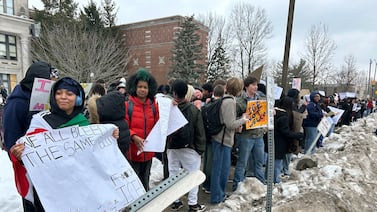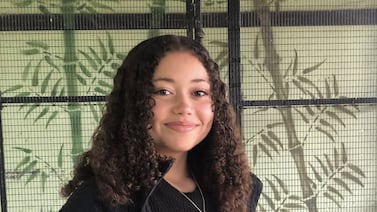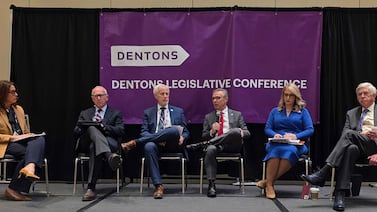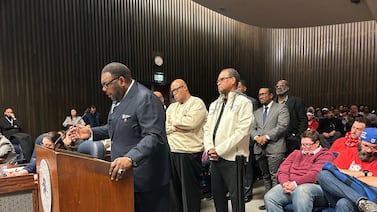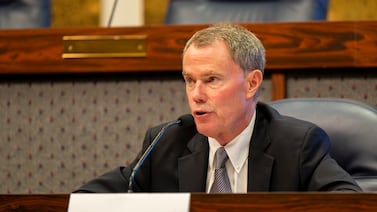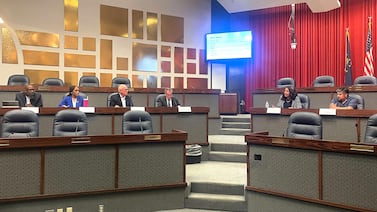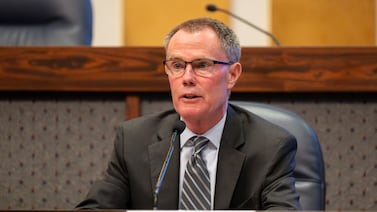Statehouse policy and politics
Lawmakers rejected amendments that would have exempted school districts and school resource officers, leaving uncertainty about how the measure may apply to K-12 schools.
Indiana legislators are advancing a bill banning phones from schools and another to cut low-earning degrees at state universities.
Under federal law, degrees must raise graduates’ earnings above those of a typical high school graduate.
At Central 9, students train for careers in veterinary science, firefighting, early education, and more as Indiana expands focus on workforce training in high school.
The parents of slain Fishers teenager Hailey Buzbee spoke in support of a social media restriction for children and teens.
Key themes this year have included students’ technology use.
The bill gives a mayor-appointed board oversight of key aspects of Indianapolis district and charter schools.
The Indiana School Boards Association said school districts already have the right to display the Ten Commandments alongside other documents.
The legislation would require the state’s public colleges and universities to consider scores from the CLT as an alternative to SAT or ACT results.
The proposed Indianapolis Public Education Corporation would have until 2028 to figure out how to manage school transportation and buildings, but its precise power over school closures is still unclear.
If Impink is elected, the remaining IPS school board members would need to appoint someone to fill the role of District 4 commissioner.
Speakers overwhelmingly rejected a recommendation that would dilute the power of the elected Indianapolis Public Schools board in favor of a 9-member board appointed by the mayor.
Separate proposals would also restrict phones in schools and allow parents to set stronger filters on school-issued devices.
The ILEA’s recommendations are heading to lawmakers, who see the potential to replicate many of them throughout the state but could be skeptical of giving mayors more power.
The 8-1 vote on the recommendations came amid increasing public pressure to retain the power of the elected school board over district buildings and transportation.
The day before the ILEA votes on final recommendations to send to lawmakers, the mayor and superintendent announced five things they want to see in the final draft. But a plan for who oversees schools didn’t make their list.
Once recommendations from the Indianapolis Local Education Alliance are finalized, they’ll head to state lawmakers.
The Indianapolis Local Education Alliance could make specific recommendations for key issues like funding, transportation, and the growth of public schools — or it could let state lawmakers fill in the blanks.
New bills proposed by Indiana lawmakers would make the state’s existing cellphone ban in schools even stricter.
The ILEA will select its final recommendations for changing how local public schools are run to state lawmakers in a Dec. 17 vote.

